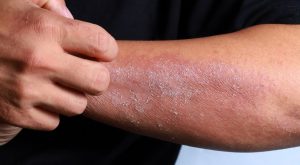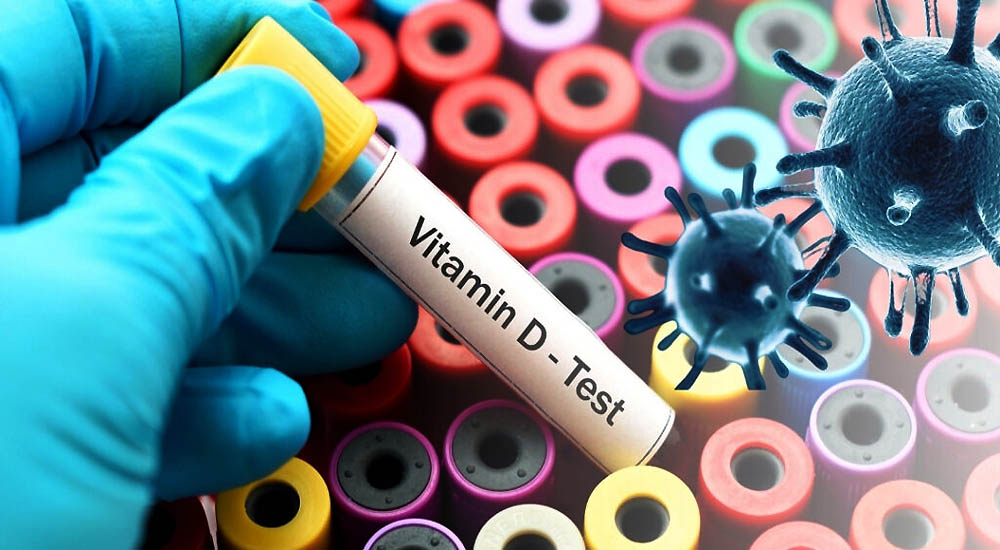How Gluten Can Contribute to Seasonal Allergies
*** this article was take from www.glutenfreeandmore.com written by Dr Vikki Peterson
If you are a seasonal or chronic allergy sufferer, you have my sympathies. I used to suffer myself. Only someone who has suffered with allergies knows the dilemma of sneezing so often you can hardly breathe, or the intensity of of watery eyes such that you can barely see.
I remember a patient we had who suffered most of the year and he couldn’t drive because between sneezing fits and watery eyes, he literally was a hazard behind the wheel.
He had tried every drug on the market with no real help and he tried my suggestions as a last-ditch effort. In just a few months, his allergies were resolved.
What are allergies? Seasonal or environmental allergies are an inappropriate response by your body’s immune system to dust or the pollen from some plant, etc. I say inappropriate because your body is reacting to something in a dramatic fashion that is not hazardous nor toxic.
Your body’s immune system secretes histamines (which is why you take antihistamines to counteract the effects) along with cytokines (inflammatory agents) in an attempt to rid your body of a perceived toxin. But as I stated, this is an exaggerated response. I’ll explain why this happens shortly.
Growing up in New York, the beautiful goldenrod perennial plant bloomed in abundance in our backyard. It was beautiful and I hated it because it was the source of my miserable allergy symptoms.
I was told I had allergies because my father had them. The “destiny” response to any ailment always annoys me because it isn’t true. You may have a tendency towards a certain condition genetically, but it doesn’t mean you are “stuck” with the condition. You can support your genetics in such a fashion that you can override your genetic tendencies. I did it for myself and helped my father and thousands of patients do the same during my 30-year career.
The goldenrod was an innocent, beautiful plant; the problem was my immune system’s response to it.
Do keep in mind that I am not discussing your body’s reaction to truly toxic substances such as inhaling bleach or being exposed to mold. The response that your immune system has to a true toxin is completely appropriate.
The big question is, why does your body react inappropriately and what can you do about it?
If your immune system is healthy and not overtaxed, it would respond in an appropriate fashion to pollen or dust, meaning no symptoms at all. The overzealous or hypervigilant response, as it is frequently known as, is a result of your immune system being in a weakened, suboptimal state. In this suboptimal state of function, it responds excessively, which results in symptoms such as sneezing, watery eyes, runny nose, itching, hives, and more.
Allergies are my focus in this article, but I’d like you to also know that a 
It all depends on which system in your body is reacting. And of course, it can be more than one.
Imagine you have been awake for three days straight. For whatever reason,
you couldn’t give your body any rest. You would find that you were hyperreactive to your environment. It might be sounds that you find aggravating, you might be moody or anxious, but all your reactions are not something you’d experience if you had gotten good rest. Similarly, once your immune system has been burdened, its integrity begins to be compromised and it reacts inappropriately. This is often the result of a leaky gut.
It is estimated that 80 percent of your immune system is housed in your gut. The human GI tract is truly a marvel. It is one cell layer thick. A single layer of cells protects what enters your GI tract from your bloodstream. The strength and intelligence of the immune system dictate what to kill (think bacteria, parasites, viruses, and toxins) and what to allow entrance to your bloodstream (think properly digested food and nutrients).
A leaky gut puts your immune system on red alert because it is confronted more and more often with these hostile elements in your bloodstream.
In a leaky gut, the healthy barrier and normal permeability of your intestine has become compromised and those things that should not be allowed to pass into your bloodstream do gain entrance, putting stress on your body. The toxins which have now been allowed entrance into your bloodstream must now be handled elsewhere in your body.
It is an unfortunate state whereby the integrity of your gut lining becomes compromised, which in turn damages your healthy immune response, which in turn further compromises your gut in a continuous spiral.
A leaky gut puts your immune system on red alert because it is confronted more and more often with these hostile elements in your bloodstream. It is this mechanism which produces the hypervigilant response I described earlier and results in the inappropriate response seen with allergies.
Let’s dig a little further and get to the root cause of why a leaky gut occurs. Gluten is a known protein to cause leaky gut. Interestingly, even those who do not have celiac disease nor non-celiac gluten sensitivity suffer a transient leaky gut when they consume gluten, according to Dr. Alessio Fasano,
world renown celiac researcher from Harvard. Although many of us have questioned whether gluten is a “friend” to anyone, Dr. Fasano’s research revealing a leaky gut as a response to gluten ingestion by anyone, certainly gave more credence to that opinion.
Beyond gluten, what else can cause a leaky gut?
- Drugs, including over-the-counter medications such as NSAIDs and antacids to name a few
- Antibiotics
- Poor diet consisting of an excess of highly processed foods and artificial ingredients
- Infections – including bacteria, viruses, parasites, and mold
- Environmental toxins – including BPA, plastics, and many more
- GMOs
- Excess alcohol
- Stress – the gut brain connection is well documented
How can you get rid of allergies for good?
Hopefully you now understand that allergies are not normal, and they indicate an inappropriate response by your immune system.To normalize your immune system, you need to identify and remove those things that are overburdening it. We mentioned that gluten is a well-known instigator of leaky gut. Therefore, it is wise to get tested for celiac disease or if that’s not possible, eliminate gluten from your diet for a minimum of 30 days (ideally 60 days) and notice how your allergy symptoms respond.
If you are already diligent on your gluten-free diet, that’s great, but if you still suffer from allergies,
it simply means there are other things taxing your immune system over and above gluten.
I mentioned stress earlier as a contributor to leaky gut. Unfortunately, stress also triggers the excess production of cortisol (a hormone) which is also triggered by allergies. Stress can, therefore, add additional burdens to your ability to heal and repair.
We commonly see dairy as a culprit, along with the list mentioned earlier. Cleaning up your diet to include only real food and avoiding GMOs, artificial ingredients, and excess alcohol, plus trying to avoid as many environmental toxins as possible, can all go a long way to help allergies. These are steps you can take on your own.
Infections in the gut are extremely common but it isn’t possible to guess as to what they might be. Testing your stool by a reputable company that performs comprehensive stool analysis is needed. Note that a stool test done by a conventional doctor or hospital is very different from a comprehensive stool analysis. The stool test done by your conventional doctor will look for a few active parasites (those that cause obvious symptoms) and blood in your stool that could indicate colon cancer. The test I’m describing detects a wide variety of chronic infections including parasites, fungus, protozoa, bacteria, and more.
Allergies can be seasonal or all year-round. Either way, the symptoms can be miserable and prevent you from enjoying life and for some, enjoying being outside in fresh air. You do not need to continue suffering. The potential solution is available to you. SGF
As always, consult a medical professional before beginning any new protocol.
Do you need help with your health?
We have the diagnostic and testing tools, the clinical experience, and a different medical approach to discovering the root cause of why you have the symptoms that are bothering you. As long as you are ready to make some dietary and lifestyle changes, we can help you. We will "hold your hand" through the changes, step by step, to make each step an easy one. We are located in Clearwater, FL, at 1000 S Ft Harrison, at the corner of Ft. Harrison Ave. and Magnolia St. There is plenty of parking space directly accessible from Ft Harrison. If it is not convenient for you to come to Root Cause Medical Clinic, we offer telehealth/telemedicine consultations to residents of certain states. Call us for details.
Contact us for a Consultation – Call 727-335-0400

Dr. Vikki Petersen DC. CCN
Founder of Root Cause Medical Clinic
Certified Functional Medicine Practitioner
Dr Vikki Petersen is a public speaker, author of two books, several eBooks and creates cutting edge content for her YouTube community. Dr Vikki is committed to bringing Root Cause Medicine and its unique approach to restoring health naturally to the world.
Ask a Doctor
Have a health concern you'd like to speak with a doctor about? Or just want clarity on a subject? Ask Us!




